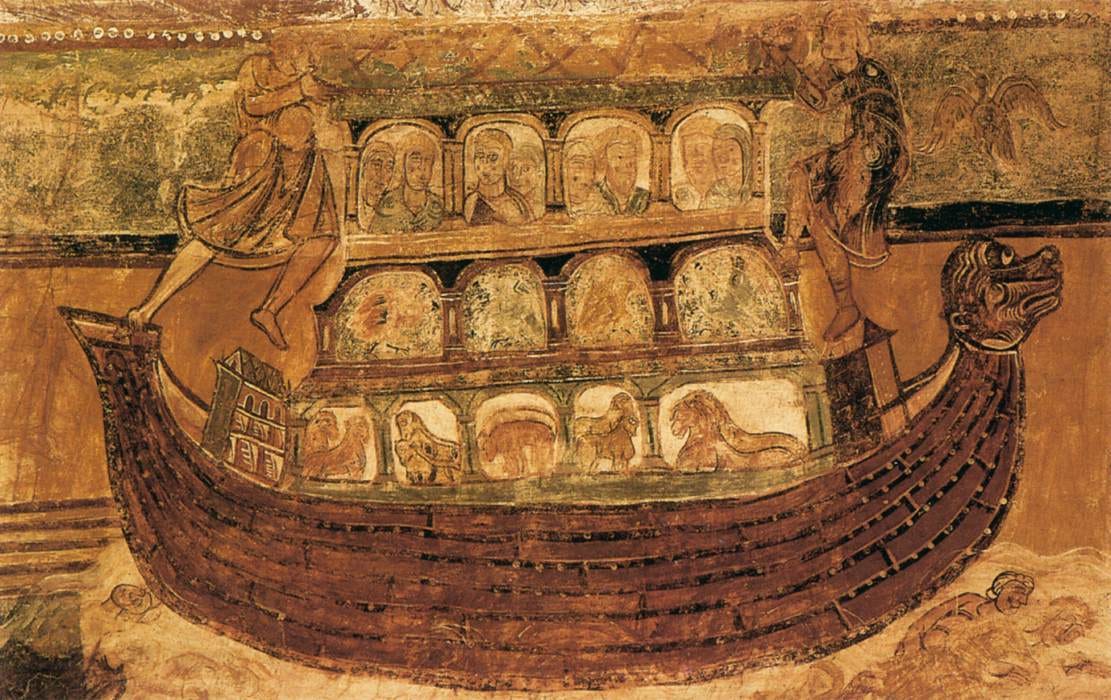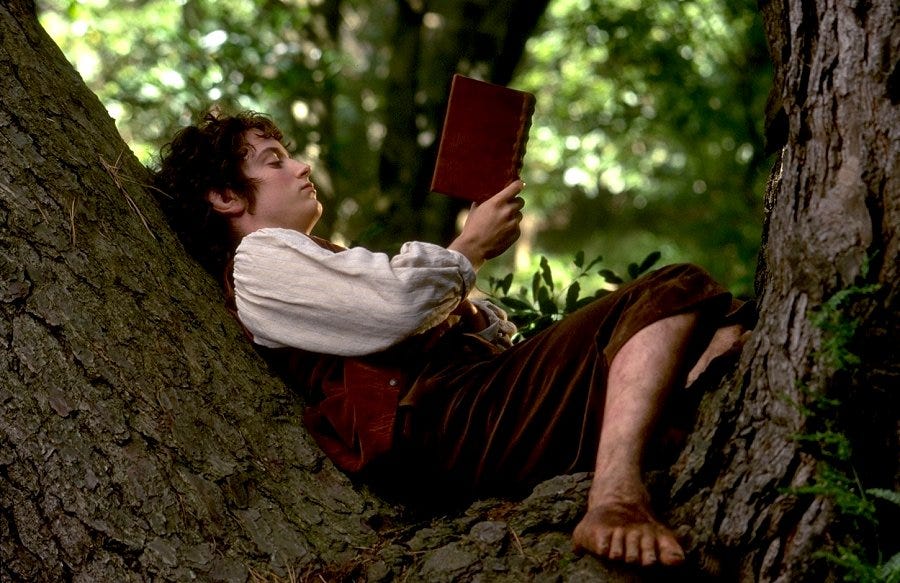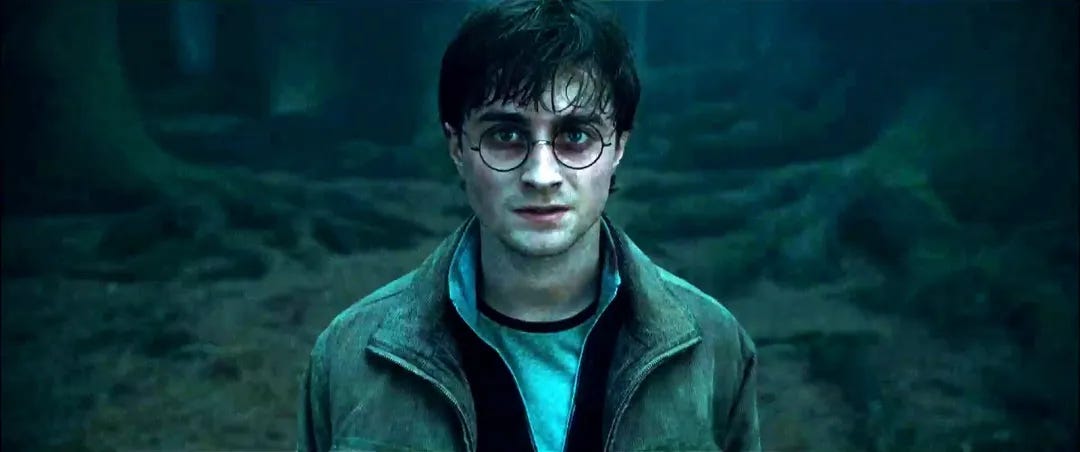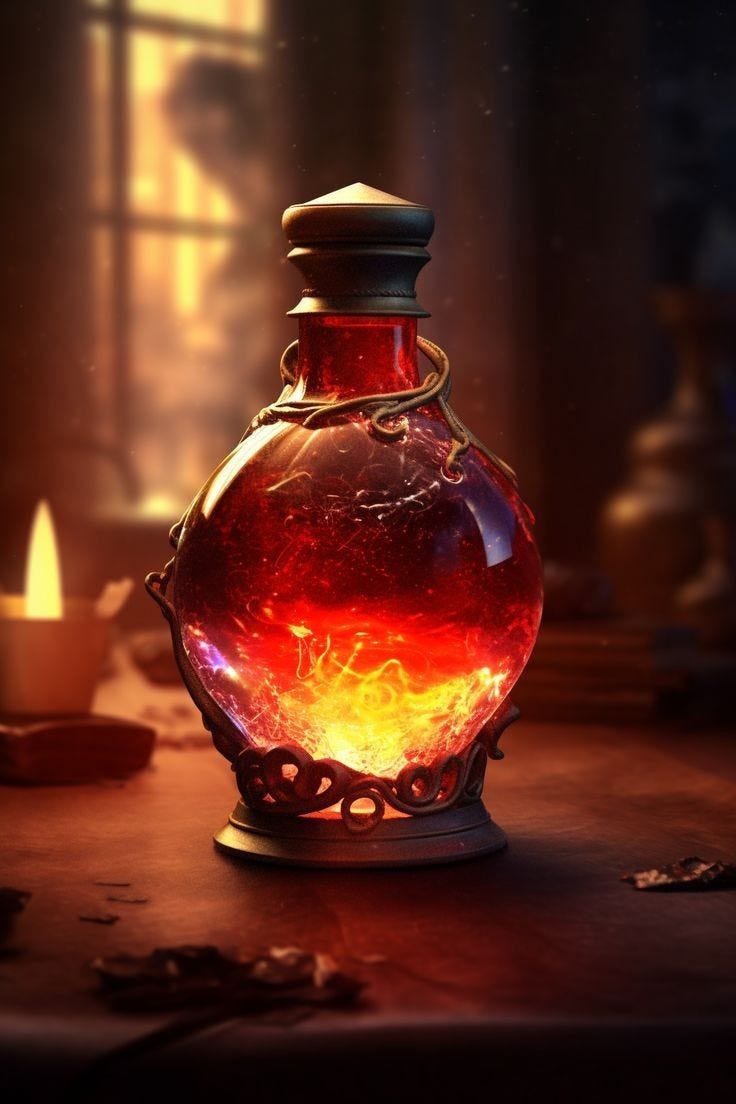The Hero's Journey Series - All in One Post
This week we spent five days walking through the Hero's Journey. Here is every entry in one post.
This week we spent five days walking through the Hero's Journey. If you missed it all…or some of it, here it is in one post for you reading enjoyment. :)
Part One: The Power of Myth
You already know this story.
A man hears a divine voice.
He’s told the world is corrupt and beyond saving.
He’s given instructions to build a massive boat.
To bring animals.
To prepare for a flood.
He builds it.
He waits.
He releases birds to find dry land.
He survives.
The world begins again.
You’re probably thinking: “Yeah, yeah… Noah. I know this one.”
But here’s the twist:
This story was told at least a thousand years before the story of Noah.
And it’s not from the Bible.
It’s from The Epic of Gilgamesh—an ancient Mesopotamian myth passed down long before the Israelites ever entered the scene.
Same structure. Same journey. Different name. Different culture.
And it’s not the only one.
Flood myths show up in cultures all over the world—India’s Manu, Greece’s Deucalion, China’s Gun-Yu flood, even in Mayan, Incan, and Aboriginal Australian traditions.
Different names. Same storm.
Different faces. Same myth.
Joseph Campbell spent his life studying myths from every culture he could get his hands on—Hindu epics, Sumerian poetry, African folk tales, Indigenous oral traditions, Christian scriptures, Buddhist parables, Norse sagas, modern films—and he discovered something unexpected:
They were all telling the same basic story.
He called it the monomyth, but you probably know it as the Hero’s Journey—because it’s a map of how humans transform.
The hero isn’t some distant figure of greatness.
The hero is you.
Normal, boring, nobody-you.
You leave as yourself…and return as the version that’s wiser, stronger, braver—finally aware of who you really are.
The Myth of Myths
Let’s clear something up.
Today, when people say something is “a myth,” they usually mean it’s false.
A rumor. A lie. A thing to debunk.
But the original meaning is the opposite.
A myth isn’t something that didn’t happen.
It’s something that happens all the time.
It’s a story so deeply true, so universally human, that it helps us make sense of life itself.
It may not be factually accurate, but it’s emotionally and spiritually undeniable.
Myth is how we give chaos a shape.
It’s how we name the unnameable and walk through what we can’t explain.
What Is the Monomyth?
In simplest terms:
A person lives in the known world.
Something disrupts it.
They resist the change.
But eventually, they leave.
They suffer.
They grow.
They return—transformed—and bring something valuable back with them.
That’s it.
You’ve seen it in Star Wars.
You’ve read it in Harry Potter.
You’ve lived it—if you’ve ever walked away from something safe in search of something real.
Monomyth just means “one story.”
It’s the story we all live—again and again.
It’s Never Just One Journey
Let’s name this up front:
You don’t just go on one Hero’s Journey in your life.
You go on many.
Some last a decade.
Some last a week.
Some change everything.
Some just change you.
They can overlap.
You might be ending one story while beginning another.
So don’t wait for the “epic” moment.
If something’s shifting, you’re already on the path.
You’re Already In It
You are somewhere on the Hero’s Journey right now.
Maybe you’re still in the Ordinary World—wondering why things feel flat, boring, too safe.
Maybe the Call to Adventure has already come—but you’ve been ignoring it.
Maybe you’ve crossed the threshold into something unfamiliar recently.
Maybe you're in the pit—what Campbell called the Belly of the Whale.
Or maybe you’ve found your way through the dark… and now you're trying to figure out how to share your treasure—what you’ve learned.
Where Are You Right Now?
Ask yourself:
What part of your life feels too small or too safe?
Is there a whisper you’ve been ignoring?
Have you already left something behind—and now you’re wandering?
Or are you holding a hard-earned truth you’re not sure how to share?
You don’t have to fix anything yet.
But naming your place in the story?
That’s how the next chapter begins.
So What Now?
Over the next four posts, we’ll walk through the full Hero’s Journey together.
Not as a formula.
But as a flashlight.
To help you see where you are—and what might come next.
Because this isn’t just a story pattern.
It’s yours.
The Hero’s Journey isn’t for classic “heroes.”
It’s for anyone brave enough to listen to the whisper and take the next honest step.
Up Next: Leaving Sleepy Land
Tomorrow, we’ll talk about what it means to step away from the known world—even when it’s comfortable, even when it’s all you’ve ever known.
Why most of us resist the call to change.
Why we try to bargain with it.
And why real growth starts when you finally say: I can’t stay here anymore.
“The hero’s journey always begins with the call. One way or another, a guide must come to say, ‘Look, you’re in Sleepy Land. Wake. Come on a trip. There’s a whole aspect of your consciousness, your being, that’s not been touched. So you’re at home here? Well, there’s not enough of you there.’”
—Joseph Campbell, The Power of Myth
Part Two: Leaving Sleepy Land
“The hero’s journey always begins with the call. One way or another, a guide must come to say, ‘Look, you’re in Sleepy Land. Wake. Come on a trip. There’s a whole aspect of your consciousness, your being, that’s not been touched. So you’re at home here? Well, there’s not enough of you there.’”
—Joseph Campbell, The Power of Myth
You don’t usually mean to fall asleep.
It just happens.
Slowly.
Safely.
Comfortably.
You settle into routines.
You trade curiosity for productivity.
You take fewer risks.
You stop asking the big questions.
You tell yourself, “This is fine.”
Until one day it’s not.
And here’s the thing:
Sleep isn’t bad.
It’s essential.
It heals. It protects. It restores.
But sleep was never meant to last forever.
There comes a moment when you’ve rested long enough—and not getting out of bed becomes its own kind of decay.
Sleepy Land is what happens when you should be awake—but you stay in a sleepy, hypnotic state.
Something has to wake you up.
The Call Always Interrupts Something
The Call to Adventure never shows up at the perfect time.
It doesn’t wait until your schedule clears.
It doesn’t care that your benefits package is decent.
It doesn’t ask how your parents will feel about it.
It just shows up.
Uninvited.
Inconvenient.
Unreasonable.
And it starts as a whisper.
A subtle restlessness.
A low-grade ache.
A question you can’t un-ask.
Most people ignore it at first.
We hit snooze.
We tell ourselves we’ll deal with it later.
We’re not ready.
It’s not urgent.
We’re too tired to think about it.
But it keeps coming back.
Sometimes quieter.
Sometimes louder.
Until one day the whisper becomes a wake-up call you can’t sleep through anymore.
The Call rarely sounds rational.
That’s what makes it a Call.
When the Hero Hits Snooze
We see it everywhere once we know to look:
Moses hears the call from a burning bush—and immediately argues with it. “Who am I to lead?” Then, “They won’t believe me.” Then, “I’m not a good speaker.”
He hits snooze about five times before he finally goes.In Hindu mythology, Arjuna stands on the battlefield in the Bhagavad Gita and freezes. The call to fight overwhelms him. He puts down his weapon and says, “I will not do this.”
In Japanese folklore, the warrior Yamato Takeru disguises himself to avoid a deadly mission—trying to escape his fate before finally embracing it.
Siddhartha Gautama (the Buddha) doesn’t wake up instantly. He sees suffering and wrestles with what it means—hesitating before leaving the palace.
In West African tales, the trickster Anansi often refuses the call by trying to outsmart it—looking for shortcuts, making deals, avoiding the hard path. And eventually, the story pushes him forward anyway.
And in modern myth?
Frodo says, “I wish it need not have happened in my time.”
Neo closes the door on the Matrix.Tommy Boy doesn’t want to grow up.
And you hit snooze again last week when something started stirring that felt too big.
The Call almost always comes with resistance.
That’s how you know it’s real.
You don’t want to go—but you can’t unhear it.
Why We Resist
We’re not lazy.
We’re not weak.
We’re not bad at being brave.
We just know—on some deep, cellular level—that if we say yes to the Call, we don’t get to stay the same.
We don’t get to keep the same identity.
The same version of success.
The same carefully constructed life we’ve been managing.
The Call threatens all of it.
Sleepy Land is what I often call “the normal world.”
It may not be perfect, but it’s predictable.
It has few surprises.
We know the rules of engagement.
We’ve learned how to win—or at least how to survive.
Leaving that world?
Even when we’re miserable in it?
Feels like giving up something we’ve earned.
And that’s terrifying.
We resist the Call because we know what it will cost us.
Not just practically, but emotionally.
We’ll have to tell the truth.
Let go of something safe.
Disappoint people.
Disappoint ourselves.
Sometimes resisting the Call feels like the more responsible choice.
But if we’re honest?
It’s the most dangerous kind of self-preservation.
It keeps us asleep—with the illusion of control—while the clock keeps ticking.
And the ticking clock?
That’s your one and only life.
What Waking Up Looks Like
Eventually, something shifts.
Something breaks open.
And you know: I can’t stay here anymore.
We’ve seen it in stories a thousand times:
Frodo loves the Shire. He doesn’t want anything to do with magic rings or dark lords. But once he knows the truth, staying home becomes impossible. The danger follows him anyway.
Luke is just a farm kid on a desert planet. He dreams of adventure but doesn’t really believe in it. Not until the Empire burns his whole world to the ground. He’s not ready—but he goes.
William Wallace in Braveheart just wants a quiet life. He literally refuses the call. Tries to build a family. Stay out of the fight. But when the fight comes for him—when they kill his wife—he can’t pretend anymore. The sleeping part of him dies. And something else wakes up.
That’s what this moment feels like.
You’ve hit snooze.
You’ve stayed in Sleepy Land longer than you meant to.
But now you know:
The story is moving—with or without you.
What About You?
Have you been asleep?
Not in a lazy way. In a safe way.
In a don’t rock the boat way.
In a this is fine way.
Are you still hitting snooze?
Do you know—deep down—that you were made for more than this?
You don’t have to say yes yet.
But notice the tension.
Feel the ache.
Pay attention to the whisper.
Because sooner or later… you’ll have to decide:
Do I stay in Sleepy Land?
Or do I wake up, summon my courage, and do what every great hero does—cross the threshold?
Because once you do that, there’s no turning back.
Part Three: Crossing the Threshold (and the Road of Trials)
“I wonder what sort of a tale we’ve fallen into?”
— Samwise Gamgee
The Day I Couldn’t Turn Back
I was 29. I’d built the life I thought I wanted.
I had started a church five years earlier—my whole dream at the time. And it worked. People came. I was their leader. But something inside me had already moved on, even if I hadn’t yet.
I was still showing up every day, but I had already told the other leaders I was going to leave. I just didn’t know exactly when. Or what I’d be doing for a job.
And that’s when a friend told me about an opportunity.
There was a show on the Strip in Las Vegas called Tony n Tina’s Wedding, and they were holding auditions. I’d never had a professional audition in my life, but I decided to go.
I read for the only two non-Italian roles that felt close to me—Michael (the ex-boyfriend) and Barry (the best man). I had no plan beyond that. I was just seeing what would happen.
The next day, the casting director called.
I got the part.
That was it. That was the threshold.
One minute I was a burned-out pastor with a pipe dream.
The next, I was a working actor in a casino show in Las Vegas.
That’s what Joseph Campbell called Crossing the Threshold.
It’s that no-turning-back, burn-the-ships moment in every story.
And this was mine.
It Happened So Fast…
For the first few days?
It felt like magic.
I was doing it. I was actually performing. On the Strip. In a real show.
But then it hit me.
Do I even know how to be an actor?
I had taken a massive pay cut. I had two small kids.
I was suddenly working late nights in a theater with a bunch of real performers—and I wasn’t sure if I belonged.
I started to panic.
What have I done?
Did I just ruin my life?
Was this all a mistake?
This is what every hero discovers after crossing the threshold:
There’s no confetti parade waiting on the other side.
Just fear. Resistance. And a whole lot of hard.
Welcome to the Road of Trials
You thought the hardest part was saying yes. But it wasn’t.
The hardest part is showing up again and again once you’ve said yes.
You’re in now. But you’re not ready.
And the only option you have—is to keep going.
Every Story Has One
I crossed the threshold in a theater on the Las Vegas Strip.
You’ll cross it somewhere else.
Maybe you already have.
Because it always looks different.
Sometimes it’s Frodo leaving the Shire.
Sometimes it’s Moana stepping past the reef.
Sometimes it’s Odysseus setting sail from Ithaca.
Or Katniss volunteering as tribute.
Or Rosa Parks refusing to give up her seat.
Or your friend who quit the job, left the marriage, or finally spoke the truth out loud.
The threshold is the moment you stop waiting and start moving.
Even if you’re scared. Even if you’re unsure. Even if your hands are shaking.
Because once you step over that line—you’re in the story now.
And the real work is just beginning.
This Is Where Most People Quit
Most people think the breakthrough comes right after the leap.
But it doesn’t.
After the threshold, you hit the grind.
You said yes to the big move. The job. The book. The relationship. The dream.
And at first, you felt brave.
But then… you got tired.
You realized you don’t know what you’re doing.
You’re not sure who you are anymore.
The people around you start questioning your choices—or worse, go silent.
And deep down, a voice starts to whisper:
You made a mistake.
You’re not enough.
You’re going to fail.
Turn back before it gets worse.
This is where most people quit the story.
But not the hero.
The hero keeps going—even when they don’t know how.
Not perfectly. Not confidently. Just one shaky step at a time.
So what do you do if you’ve crossed the threshold and now find yourself in your own Act Two —the “long middle” of your story?
You do what heroes always do.
You keep going.
Because the Road of Trials isn’t about winning.
It’s about surviving.
It’s about becoming.
The Long Middle
In most great stories, the biggest section by far is the Road of Trials.
Frodo doesn’t just leave the Shire and drop the ring in Mordor.
Moana doesn’t cross the reef and immediately restore the heart of Te Fiti.
Odysseus doesn’t set sail and arrive home the next morning.
There are storms. Monsters. Detours. Losses.
There’s a long stretch where it feels like the hero might not make it.
It’s the same in our lives.
We cross the threshold thinking the worst is behind us—
but it turns out the middle is the hardest part.
Because becoming someone new takes time.
More time than we want it to.
The trials are what shape us.
Each obstacle we overcome makes us stronger—
a little more prepared, a little more clear.
Because eventually, the path brings us face to face
with the one enemy only we can confront:
Ourselves.
This is the heart of the hero’s journey.
The great adventure that we were so sure was taking us from our sleepy normal world to the treasures of a fantastic unseen land?
That adventure is never actually the ultimate journey for the hero.
Our journey outward pulls us inward.
The whole point, it turns out, is to get us so out of sorts that we relent and finally do the one thing we have avoided forever.
Confront our shadow.
Part Four: The Descent and the Mirror
So far, our hero has left Sleepy Land.
They crossed the threshold.
Begun to endure the Road of Trials.
New places. New people. New challenges.
The hero gets stronger. Smarter. More alive.
But then… something shifts.
The trials aren’t just “out there” anymore.
They turn inward.
The monster isn’t just in the forest.
It’s in the mirror.
This is the part of the story where the hero descends.
Not just in a metaphorical way.
They actually go down.
Into the depths—the cave.
Into the belly of the whale.
Into the underworld.
Into themselves.
Every Good Story Goes Dark
Luke Skywalker doesn’t just fight the Empire.
He learns that Vader is his father—and he has that same darkness in him.
Frodo doesn’t just carry the ring to Mordor.
He gets consumed by it.
Moana isn’t just chosen to save her island.
She breaks down on the ocean and nearly gives up.
Simba doesn’t just reclaim Pride Rock.
He sees his reflection in the water and realizes: he’s the king now.
Harry Potter doesn’t just defeat Voldemort.
He has to face death, sacrifice himself, and confront the part of Voldemort that lives inside him.
This is the moment in the story when something dies.
An illusion. A false identity. A lie you told yourself.
And only by facing that can something new be born.
This Is the Part No One Talks About
The truth is, we don’t just go on one Hero’s Journey in life.
We go on a few.
Some are small. Some are seismic.
Some happen early. Some hit later.
This was one of the big ones for me—and it came just a couple years ago.
I was the CEO of a company I’d helped lead and build.
From the outside, everything looked like success.
The company was growing. I had influence. I was doing meaningful work.
But inside—I was falling apart.
I wasn’t sleeping.
I was depressed.
I had intrusive thoughts I’d never had before.
And I was trying to handle it all alone.
Because I was the leader.
I wasn’t supposed to be out of alignment.
I definitely wasn’t supposed to be unstable.
But I was.
And had I kept going for another month or two, I honestly don’t know what would have happened.
Hospitalization was likely. Or worse.
My pride and ego were pushing me through each day. Barely.
I didn’t want to admit defeat.
But one day—I picked up the phone.
I called my business partner and told him everything.
I said I couldn’t do it anymore.
I asked him to buy me out.
I didn’t even care what he offered—I just needed out.
(For the record, I’m a terrible negotiator on my good days. But at that point, I just wanted to get out—to get better.)
He was gracious. He was fair.
And within a month, I was out.
That’s when I remembered something important.
When I started my company 12 years earlier, my goal wasn’t to be a successful CEO.
It was to tell stories.
To have a voice.
To spark hope and action in others.
This wasn’t the end of my story as a CEO—it was the biggest battle in the story of my calling as a storyteller and teacher.
This was the cave.
The mirror.
The depths of the longer story I’d been living.
And on the first day I could breathe again, I opened my MacBook Air and started writing.
I started Called For Adventure.
To tell stories.
To have a voice.
To help others find hope—and take action.
My biggest battle of the journey was over.
I had faced the monster.
And survived.
And the monster wasn’t out there.
The monster was me.
If You’re Here, You’re Not Alone
Maybe you’re in this part of the journey right now.
And maybe no one knows it.
On paper, things are fine.
You have the job. The kids. The title. The stability.
But deep down… you know something is unraveling.
You’re tired. You’re hollow.
You’re waking up in a life that doesn’t quite fit anymore.
If that’s you—I want you to know:
You’re not broken.
You’re becoming.
This part is brutal.
But it’s essential.
You can’t skip the descent and expect to rise.
You can’t become whole without facing the parts of you you’ve hidden.
You can’t finish your story until you’ve died to yourself.
Want to Go Deeper?
This part of the Hero’s Journey is so crucial, I wrote a whole five-part series about it.
I called it The Shadow Series—and it explores this descent in more depth. Those posts are linked below:
This Isn’t the End
Every great story descends.
It’s the moment when the hero nearly gives up.
When everything feels lost.
When you don’t know if you can go on.
But somehow, they do.
Not because they’re stronger than you.
But because they finally face their shadow.
And that surrender changes them.
Next time, we’ll talk about what comes after the depths:
The return. The elixir. The gift you bring back.
But you can’t offer the gift until you find it.
And you don’t find it on the mountaintop.
You find it in the cave.
Part Five: The Elixir—How Your Story Heals Others
“The whole point of the journey is to come back home and give what you’ve found away.” — Joseph Campbell
The Journey Isn’t Over Yet
Most people think the journey ends when you slay the dragon.
But if you’ve ever actually been through something big—something that cracked you open and put you back together—you know that’s not true.
The hardest part isn’t leaving.
It’s returning.
Because now you’re different.
And home isn’t.
You’ve seen things. You’ve learned things. You’ve become someone else.
And somehow… you’re supposed to carry all that back to the life you once knew—and figure out how to live there again. Or at least visit.
That’s the final step of the hero’s journey.
And it’s the one we talk about the least.
Treasure vs. Elixir
We think the story is about the treasure.
The gold in the dragon’s lair.
The girl in the romcom.
The glory and freedom at battle’s end.
And to be fair, sometimes the hero gets the treasure.
But not always.
And even when they do, that’s not the real point.
Because the treasure is external.
The elixir is something else entirely.
The elixir is the knowing.
The wisdom.
The change that happened inside the cave, in the belly of the whale, in the place where everything broke.
The hero might bring home gold. But if they don’t bring home the elixir—
—then no one else gets to heal.
Because the elixir isn’t for you.
It’s what your story gave you that someone else might need.
What Is an Elixir, Really?
It’s called the elixir because, in mythic language, an elixir is a healing potion.
It’s the thing that restores what was broken.
It doesn’t just change the hero—it has the power to heal the village, too.
In stories, it might be a literal cure. A vial of magic. A sacred object.
But in real life?
It’s usually a truth hard-won.
A clarity forged in suffering.
A lesson that cost you something.
The elixir is the wisdom that came from the wound.
And now, if you’re brave enough, you carry it back not as a trophy…
But as a gift.
How I Finally Found Mine
I’ve taught this idea of the elixir for nearly 20 years.
But something happened to me in the last few months—I finally felt like I actually experienced it.
I’m sure I’ve brought back other elixirs before.
But this one was different.
Many of you know I grew up deeply religious. I was all in—Bible studies, mission trips, the whole deal. I became a pastor, a church planter, a leader in evangelical Christianity.
But my longest journey—the one I never quite wrote about publicly—was the one that took me away from all of that.
I left my normal world to seek answers to questions that haunted me.
And for years, I didn’t return.
Not because I didn’t want to.
Because I didn’t know if I could.
Would people accept me? Would what I’d learned even help anyone?
Would my new story just make old friends sad… or angry… or disappointed?
So I kept my elixir under my cloak.
I met one-on-one with dozens of people—people asking the same questions I had wrestled with for over a decade.
And I realized: my story was helping.
Not because I had answers. But because I had survived the questions.
Still, I stayed quiet. I had left that world as a preacher. Someone with a voice.
But when I returned, I was mostly mute.
Until a few months ago.
That’s when I decided to speak again.
Not to convert anyone.
But to create space for people like me—people with questions they were afraid to ask.
So six weeks ago I started Deconstructed Pastor.
Like here, I write honestly—but over there, I focus on my faith story. It’s where I share the journey that led me out of evangelicalism, the questions that unraveled my old beliefs, and the deeper, freer faith I’ve mostly pieced together now.
And guess what?
Some people are, indeed, upset about it.
Some are disappointed.
Some think I’ve lost my faith—or my mind.
Some say I never knew God. Or that I’m demon-possessed. Or that I just wanted to sin without guilt. That I’m a heretic.
Some people say that.
But most people say something else.
“Thank you.”
“This helps me.”
“I thought I was alone.”
“You’re giving me hope.”
“Your words are healing me.”
And the strangest thing?
I feel almost no shame. And almost no pride.
Even the compliments don’t puff me up.
Even the criticism doesn’t cut too deep.
I’ve been surprised by how much peace and joy I’ve felt through the process.
I think I know why.
This isn’t me.
It’s rooted in my story, my wounds, my journey.
But it’s not me.
It’s the elixir.
Something I picked up in a far-off land and brought home to my people—
to the religious folks who’ve been secretly doubting and questioning for years.
And now, all the pain?
The years of doubt, fear, depression, and confusion?
It’s weirdly worth it.
Because I see what it became.
My pain turned into hope.
And now I get to give it away.
Becoming Who You Truly Are
And for the first time in my entire life…
I feel truly free to be me.
There’s a quote I’ve used for years—something Carl Jung said:
“The privilege of a lifetime is to become who you truly are.”
I’ve taught that. I’ve believed it.
But only recently have I actually experienced it.
And—to sound just a little evangelical again for a second—I can testify that it’s true.
I’m not who I used to be.
But I’m not lost anymore.
I’m home.
I’m whole.
And I have something to give.
What’s in Your Cloak?
It took me my whole life to get to the elixir for that story.
Yours might take decades too. And that’s okay.
But I also have other stories—smaller journeys.
Ones that lasted a few months. A few years.
I’ve picked up other elixirs along the way.
They’re tucked in the folds of my cloak, waiting for the right moment.
And you have some, too.
Maybe as you read this, you thought of one.
A time when you went through something hard, came out the other side, and quietly carried the wisdom with you.
That’s your elixir.
And maybe—just maybe—it’s time to stop hiding it.
Not for attention. Not to be the hero.
But because someone needs it.
Because stories heal when they’re shared.
And because part of becoming who you truly are…
is learning how to give away what you almost died to find.








